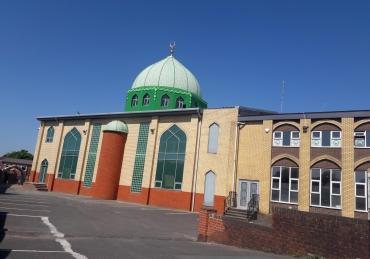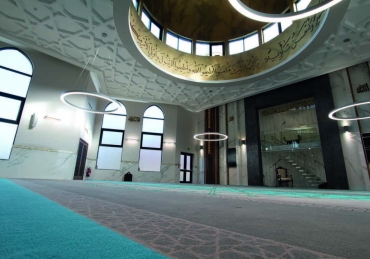Coronavirus: Should Masjids close?
Question
There is a lot of confusion regarding congregational Ṣalāh in Masjids and whether Masjids in the UK should remain open or closed, what is the Islamic perspective in this regard? There is also a message circulating that over 60s should not attend Masjids.
(For other Q&As & articles regarding Coronavirus, click here)
(Important note: Refer to this link for further advice and to this link for the agreed position of senior UK scholars regarding this issue)
بسم الله الرحمن الرحیم
Answer
Masjids in the UK should remain open for congregational Ṣalāh until and unless the government places a total restriction on religious places. Those diagnosed with Coronavirus or with its symptoms should perform Ṣalāh at home. Similarly, those with underlying health conditions, particularly the elderly, are excused from attending the Masjid.
We are aware of the advice of some organisations in relation to over 60s not attending Masjids. However, over 60s should not be discouraged from attending the Masjid if they do not have any underlying health conditions.
It is recognised that there are mixed views in relation to Masjids remaining open. These decisions are not taken lightly, and everyone recognises the severity of the pandemic. Those who wish to attend the Masjids should not be belittled or prevented from doing so.
The advice to keep Masjids open for congregational Ṣalāh takes into account the following:
- The importance of Masjids and congregational Ṣalāh, as reflected from congregational Ṣalāh during war (Ṣalāt al-Khawf) and other ḥadīths.
- The protection of faith supersedes the protection of one’s self.
- The Prophet’s ﷺ practice of rushing to the Masjid during calamities.
- A significant portion of the Ummah abandoning Ṣalāh particularly congregational Ṣalāh and other sins causing such epidemics. The Masjid and congregational Ṣalāh is part of the solution and not the problem.
- Masjids remaining open when epidemics occurred during the era of the companions and thereafter.
- Ḥadīths advising precautions during epidemics do not mention closing Masjids or stopping congregational Ṣalāh.
- The differentiation between an individual decision not to attend a Masjid and a collective decision to close a Masjid for congregational Ṣalāh. (It is worth noting if Eid occurs on a Friday, according to ḥanbalīs, Jumuʿah Ṣalāh is not necessary on individuals, however, Jumuʿah Ṣalāh must be established in the Masjids, as outlined in an earlier answer).
- The continued running of schools notwithstanding the huge risks and the duration of time (6-8 hours) spent therein.
- The limited 5-10 minutes duration of congregational Ṣalāh.
- The ground reality of Muslims continuing to attend weddings, functions, shopping centres, and other public and private places and spending much more time than the time spent in congregational Ṣalāh.
Therefore, Masjids should remain open for congregational Ṣalāh, and should adopt the necessary precautions in a proportionate manner to manage the risks. The benefits of keeping Masjids open significantly outweigh the risks at this stage. This will be reviewed continuously as the situation evolves and in light of the government’s guidance. In reaching this conclusion, we have today consulted with our local Public Health England officials also who agreed that at this stage managing the risks via precautionary measures was a reasonable and proportionate response.
Allah know best
Yusuf Shabbir
22 Rajab 1441 / 17 March 2020
Approved by: Mufti Shabbir Ahmad and Mufti Muhammad Tahir







